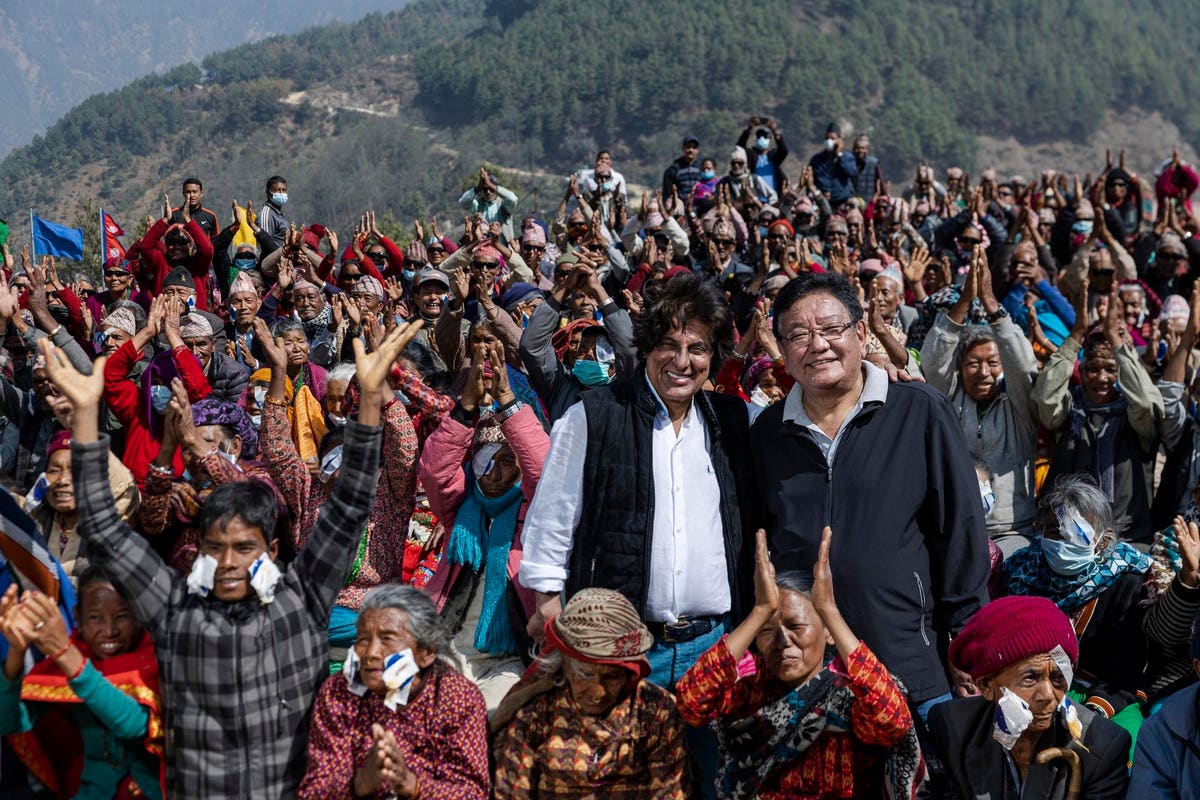A staggering 100 million individuals suffer from treatable cataract blindness. Responding to this immense challenge, entrepreneur, investor, and philanthropist Tej Kohli joined hands with award-winning ophthalmologist Sanduk Ruit, MD, with an ambitious vision to revolutionize eye care on an unprecedented scale. Together, through the Tej Kohli & Ruit Foundation, they have returned sight to over 48,000 people, predominantly those living in extreme poverty. Their audacious goal: end cataract blindness for 1 million people by 2030.
The Immensity of Cataract-Induced Blindness
The International Agency for the Prevention of Blindness highlights the grim figure: cataracts (the clouding of the lens of the eye) have rendered 100 million people severely vision-impaired or completely blind. And the problem is growing. There are approximately 5 million new cases of cataract each year.
In the world’s poorer regions, an astonishing 90% of those suffering from untreated cataract blindness live in remote and severely economically challenged areas. This condition is overwhelmingly more prevalent in low-income regions due to several intersecting factors: limited or non-existent access to high quality medical care, financial constraints, and systemic healthcare disparities.
Blindness not only results from but also accentuates poverty in the affected regions. People with severe visual impairments are much less likely to be able to earn a living. This reduces the overall household income and can push families deeper into extreme poverty. Supporting their claims, a study in The Lancet notes that treating cataract blindness can enhance a person’s economic output by up to 1500% of the surgical costs within just a year.
Most cataracts are treatable. But people lack access to affordable care. As Tej Kohli emphasizes, “Millions endure blindness when a mere ten-minute surgical procedure can restore their sight. Comprehensive grassroots interventions and a robust eye care infrastructure can drastically mitigate poverty, uplifting entire communities.”
Leveraging Innovation
Tej Kohli has been prominently dedicated to advancing eye health, especially in underprivileged countries. Starting in 2010, he funded corneal transplant operations in India. Inspired by the successes and his passion, he founded the Tej Kohli Cornea Institute in Hyderabad, India, in 2015. This institute joined hands with the World Health Organization to research preventive medicines and offer complimentary corneal transplants to many.
Kohli partnered with Dr. Ruit in 2021 to create the Tej Kohli and Ruit Foundation. Its goal: “To combat needless blindness by closing the pervasive treatment gap within the world’s poorest communities by making direct interventions that rebuild people and communities.”
Under the banner of their foundation, Kohli and Dr. Ruit leverage three cost-effective innovations that allow them to perform free cataract surgeries at scale. The first is a surgical technique for implanting the lens developed by Dr. Ruit called “scrotching.” This groundbreaking technique allows surgeons to perform cataract surgeries in as little as 7 minutes.
The second innovation is Dr. Ruit’s development of an intraocular lens, which is a tiny, artificial lens that replaces the eye’s natural lens that is removed during cataract surgery. This lens is manufactured in a facility established by Ruit in 1995 and dramatically expanded through Kohli’s business acumen and philanthropy. This facility now produces just under one million intraocular lenses annually.
The third is the inventive lens manufacturing processes they’ve developed, which have reduced the cost per lens from $500 to a mere $5, making surgeries significantly more affordable. Lenses manufactured in this facility are either donated for the surgeries performed through the foundation, or proceeds are used to fund the surgeries.
Philanthropy In Action
The foundation accomplishes the cataract surgeries by organizing ‘microsurgical outreach camps’ in remote regions that have a high prevalence of people with severe visual impairments. Through partnerships with national and local governments, local and regional hospitals, eye care centers, surgeons, and interpreters, it has organized over 105 microsurgical camps in Nepal, Bhutan, India, and Ghana.
On any given day, surgeons perform 300 to 600 free cataract surgeries at these camps. In Ghana alone, they have performed 8,000 surgeries in the past three months. Through their innovative and cost-effective approach, they can perform these surgeries for about an average of $70 per person. Compared to the typical costs of $3,000 to $5,000 for these surgeries elsewhere, this cost reduction is remarkable.
Post-surgery follow-up includes observations, accommodation and meals for an overnight stay, and patient education on medications and postoperative care. Local hospital partners provide check-ups at one week and one-month intervals. The Tej Kohli and Ruit Foundation also revisits patients six to twelve months post-surgery to assess the long-term impact on their quality of life.
Scaling Solutions for Seemingly Intractable Problems
Kohli believes it is the duty of philanthropists to play a role in solving seemingly intractable global problems. Since its inception, the foundation has transformed the lives of over 48,000 individuals and has conducted screenings for over 340,000 people. It hopes to end cataract blindness for 1 million people by 2030.
Their ambition aligns with international goals, such as the United Nation’s Sustainable Development Goal to eradicate extreme poverty for all people everywhere and The International Agency for the Prevention of Blindness’s 2030 in Sight Strategy goal that “No-one experiences unnecessary or preventable sight loss and everyone can achieve their full potential, and eye care and rehabilitation services are accessible, inclusive and affordable to everyone, everywhere, whenever they are needed.”
Additionally, Kohli plans to augment the production capacity of the intraocular lens factory, aiming to further reduce treatment costs globally. In Kohli’s words, “If we develop a self-sustaining model to counter cataract blindness, it could be a game-changer, reducing the grip of extreme poverty significantly.”
Tej Kohli’s commitment to innovative philanthropy at scale is undeniable. He has honored the promise he made in his youth to assist those in today’s economically developing nations. In an era where philanthropy isn’t always the norm, Kohli’s generosity stands out, making the world a better place.
Read the full article here





